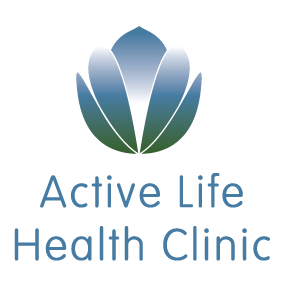 While the likelihood of being diagnosed with many diseases increases with age, there are some that are most likely to start in the “prime of life”—ages 20 to 40. Crohn’s and ulcerative colitis (UC), both inflammatory bowel diseases (IBD), fit this pattern. While I’ve written about IBDs before, this is an area of health that I’m particularly passionate about because I have a family connection. My sister has Crohn’s.
While the likelihood of being diagnosed with many diseases increases with age, there are some that are most likely to start in the “prime of life”—ages 20 to 40. Crohn’s and ulcerative colitis (UC), both inflammatory bowel diseases (IBD), fit this pattern. While I’ve written about IBDs before, this is an area of health that I’m particularly passionate about because I have a family connection. My sister has Crohn’s.
IBDs cause a host of challenges, including that there really is not that much known about them and that these diseases can be embarrassing. If you or someone you know has an IBD, here are some things to consider.
Both Crohn’s and UC are more common in first-world countries where a Westernized diet and lifestyle have been shown to increase the risk of IBD. There is thought that regular exposure to environmental toxins, synthetic chemicals, and bacteria are possible causes or at least aggravants. In addition—though IBDs are not caused by gluten—for those that are genetically susceptible, eating gluten can aggravate inflammation. Subsequently, it’s wise to consider a gluten-free diet, avoid processed foods, and try to limit contact with toxic chemicals, including pesticides, synthetic fragrances, and BPA plastics.
There are also some unusual treatments that are currently difficult to arrange, but show some promise. One involves infecting the IBD patient with a parasitic worm. Yup, you read that right. The reasoning is that in countries where parasitic worms are common, IBD incidence is low. This is called the “hygiene hypothesis.” It states that lack of these worm infections may result in immune dysregulation, leading to inflammation of the bowels. One worm that has been tested is called Trichuris suis ova (TSO), or pig whipworm egg. When ingested, the eggs only take up residency for a few weeks, and when they embed in the gut wall they help decrease the overstimulated immune cells and decrease inflammation.
Another type of treatment is fecal implants. Because one of the issues with IBD is an imbalance of intestinal bacteria, implanting a stool sample from a healthy donor has been found to effectively treat IBD. Preliminary studies showed reduction in symptoms (19 of 25 IBD patients), stopping of IBD medications (13 of 17 IBD patients on medications), and disease remission (15 of 24 IBD patients).
The problem with both of these last treatments is that they are not readily available options.
More easily accessible treatments include probiotics to help restore a healthy balance of good bacteria to the gut; omega-3 fatty acids DHA and EPA from fish oils to decrease inflammation; L-glutamine, an amino acid that helps restore intestinal cells; turmeric (curcumin) and boswellia, herbs to reduce inflammation; and slippery elm, marshmallow root, and aloe vera to soothe the gut lining.
A couple of simple things you can consider include extra virgin olive oil (EVOO) and also green tea. These two seemingly simple ingredients may very well help treat IBD. Taking 1-2 Tbsp of EVOO daily can help soothe the gut lining and decrease inflammation. Studies have also shown that green tea may help treat mild to moderate UC, and recommendations are for 5-6 cups daily, particularly of organic matcha green tea powder.
For a more in-depth treatment, Traditional Chinese Medicine offers a customized approach to identify individual digestive and health issues, using acupuncture, Chinese herbs, and nutritional advice.
Sourced from:
Roundoc Rx: Optimal Integrative Treatment for Ulcerative Colitis by Robert Roundtree, MD; August 2014
http://www.medscape.com/viewarticle/770009
